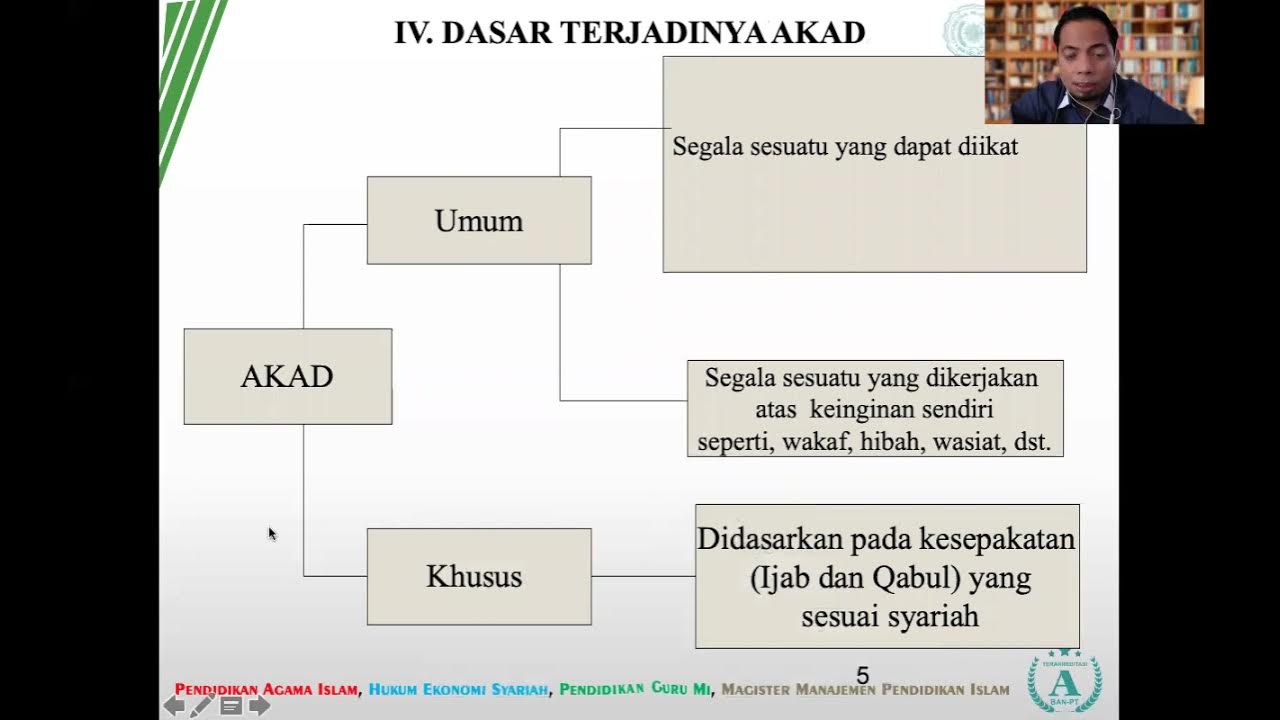Why Study Sharia and Islamic Law
Summary
TLDRIn this discussion, an expert in Islamic studies explains the concepts of Sharia and Islamic law, emphasizing their common misunderstandings. Sharia is described as a comprehensive path reflecting God's will, encompassing ethics, personal conduct, and regulations. The expert distinguishes Sharia from fiqh, the human interpretation of divine law, which draws on sources like the Quran and Hadith. The term Sharia, while significant, appears infrequently in the Quran, gaining importance over time. Ultimately, the conversation highlights Sharia's broader implications beyond legalities, influencing moral and social interactions within the Muslim community.
Takeaways
- 😀 Sharia is often misunderstood, both by Muslims and non-Muslims, and is frequently conflated with Islamic law.
- 😀 The term 'Sharia' linguistically refers to a path towards something important, signifying guidance in a broader sense.
- 😀 Sharia encompasses a comprehensive body of teachings, ethics, and regulations that go beyond mere legal aspects.
- 😀 The juristic interpretation of Sharia is encapsulated in the term 'fiqh', representing a deep understanding of divine will as revealed through various sources.
- 😀 Key sources of Sharia include the Quran, the teachings and practices of Prophet Muhammad (hadith), and methods of interpretation such as consensus and analogy.
- 😀 There exists an epistemic distance between the ideal concept of Sharia and the practical application of fiqh by jurists.
- 😀 The term 'Sharia' appears infrequently in the Quran, suggesting that its importance developed over time within Islamic thought.
- 😀 Personal conduct and ethical interactions are significant components of Sharia, governing how Muslims should live daily.
- 😀 Legal aspects of Sharia, such as marriage and inheritance, only become legally enforceable when recognized by worldly authorities.
- 😀 Understanding Sharia requires a nuanced view that acknowledges its multifaceted nature, encompassing both spiritual and practical dimensions.
Q & A
What does the term 'Sharia' mean linguistically?
-Linguistically, 'Sharia' refers to a path or means towards something important, originally suggesting a route to a watering place.
How is Sharia often misunderstood?
-Sharia is commonly conflated with the modern concept of Islamic law, leading to misconceptions about its broader implications and meanings.
What are the main components of Sharia according to the discussion?
-Sharia comprises a body of regulative precepts, ethics, theology, and guidelines for human behavior, reflecting God's knowledge and opinions.
What is 'fiqh' and how does it relate to Sharia?
-'Fiqh' means a deep understanding of Sharia and represents the jurists' interpretation of its principles based on sources like the Quran and Hadith.
Which sources do jurists rely on to derive rulings from Sharia?
-Jurists rely on the Quran, the life and teachings of Prophet Muhammad as recorded in the Hadith, consensus, analogy, and rationality.
How frequently does the term 'Sharia' appear in the Quran?
-The term 'Sharia' appears very rarely in the Quran, with only a few instances noted by scholars.
When did the concept of Sharia gain significance in understanding Muslim normativity?
-The term 'Sharia' became significant around the third century after the death of Prophet Muhammad as Muslims were developing a normative system.
What are some major concerns of Sharia beyond legal aspects?
-Sharia addresses personal interactions, ethical behavior, how to respond to greetings, and guidelines for prayer, fasting, and charity.
How do legal rulings from Sharia become legally enforceable in modern contexts?
-Legal rulings from Sharia become enforceable when they receive positive recognition from worldly authorities, such as states or communities.
What distinction does Bo Johnny make between Sharia and modern Islamic law?
-Bo Johnny emphasizes that while Sharia is an ideal regulatory system based on divine will, modern Islamic law reflects human interpretations and applications of Sharia principles.
Outlines

Этот раздел доступен только подписчикам платных тарифов. Пожалуйста, перейдите на платный тариф для доступа.
Перейти на платный тарифMindmap

Этот раздел доступен только подписчикам платных тарифов. Пожалуйста, перейдите на платный тариф для доступа.
Перейти на платный тарифKeywords

Этот раздел доступен только подписчикам платных тарифов. Пожалуйста, перейдите на платный тариф для доступа.
Перейти на платный тарифHighlights

Этот раздел доступен только подписчикам платных тарифов. Пожалуйста, перейдите на платный тариф для доступа.
Перейти на платный тарифTranscripts

Этот раздел доступен только подписчикам платных тарифов. Пожалуйста, перейдите на платный тариф для доступа.
Перейти на платный тариф5.0 / 5 (0 votes)






